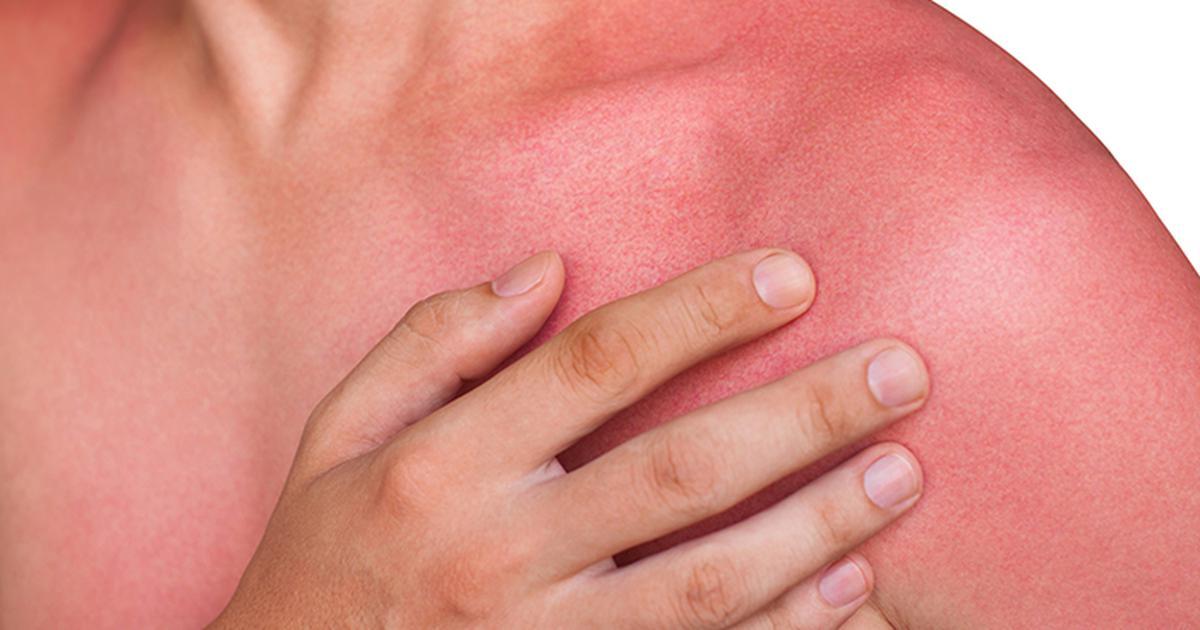What Causes Psoriasis?
Psoriasis is a condition where skin cells grow at a rapid rate, causing an accumulation that forms lesions around the body. Psoriatic lesions typically affect the knees, elbows, hands, feet, eyelids, mouth, lips, ears, face, and scalp. Psoriatic lesions tend to favor the folds of the skin and are known to cause feelings of discomfort, such as itchiness, burning, and stinging. The severity of an individual's psoriasis is dependent upon the portion of the skin affected by it, and the degree to which it affects daily activities. Psoriasis is diagnosed using medical history, physical examinations, and skin biopsy. Mild psoriasis cases are treated with the use of topical medications in the form of creams, shampoos, moisturizers, and ointments. Moderate and severe cases of psoriasis are treated with phototherapy, biologic drugs, and topical medications.
A handful of mechanisms can cause psoriasis to develop, and several factors can increase the risk. Get to know more about this now.
Immune System Issues

While the exact mechanism is not clear, immune system issues are thought to play a significant role in the pathogenesis of psoriasis. Around ten percent of the population inherit certain genes that put them at a higher risk of developing psoriasis, though only around three percent of this portion of the population actually end up developing psoriasis. It is thought that around twenty-five different gene variants can cause alterations in the way an affected individual's T-cells function. T-cells are the type of cell that is part of an individual's immune system responsible for fighting off foreign pathogens such as bacteria and viruses. However, individuals with certain genes have an immune system that mistakenly and inappropriately attacks their skin cells. This malfunction can cause blood vessels in the skin to become enlarged, an increase in the production of proliferation promoting cells, accumulation of skin cells on the skin surface, and the development of thick and patchy psoriatic patches.
Uncover more information on the causes, triggers, and risk factors linked to psoriasis now.
Infections

Many types of infections can trigger the onset of psoriasis when combined with an individual's other predisposing factors. Infections caused by streptococcal bacteria can trigger the onset of guttate psoriasis. Guttate psoriasis can be triggered by other types of infections as well. This type of psoriasis is known to occur suddenly, and produce raised, scaly, small, round spots on an affected individual's skin referred to as papules. These papules most often occur on a patient's torso, arms, legs, face, scalp, and ears. Streptococcal infections and infections that occur in an individual's upper respiratory tract have also been known to trigger flare-ups of guttate psoriasis. Tonsillitis infections caused by viruses or bacteria have also been known to trigger guttate psoriatic episodes. The first symptoms of an infection that later causes a guttate psoriasis flare-up will usually manifest between two and three weeks before the psoriatic lesions develop.
Read more about the various triggers associated with psoriasis now.
Skin Injury

Injuries to the skin, such as sunburn, excessive scratching, and skin inflammation can trigger the onset of psoriasis in individuals who have other pre-existing risk factors. This psoriasis trigger is associated the most with a type of psoriasis called plaque psoriasis. Cuts, burns, vaccinations, non-related skin conditions, bruises, bumps, medical procedures, sunburns, insect bites, and tattoos are all types of skin injury that can trigger a flare-up of psoriasis. The condition where psoriasis symptoms erupt at the site of an individual's skin injury is referred to as the Koebner phenomenon. These psoriatic lesions may develop on parts of the body where psoriasis does not traditionally occur. Around twenty-five percent of all individuals affected by psoriasis will experience the Koebner phenomenon. Each reaction that occurs as a result of skin injury takes a different course at a different pace. The psoriatic plaque that occurs in a patient due to a skin injury may develop between ten to twenty days following the injury, or it can take up to two years.
Continue to reveal more triggers and risk factors for psoriasis now.
Stress

Compounded levels of mental and emotional stress can trigger psoriasis to flare up or become worse. The combination of stress and psoriasis in an individual can produce a symptomatic inflammatory cycle that may be difficult to break. A psoriasis patient can experience a flare-up due to the hormonal fluctuations that occur in their body when it responds to any form of stress. The psoriatic flare-up in an individual initiated by stress hormones can produce further stress. Overactivation of the stress response in the body causes more inflammatory reactions and psoriatic flares. This cycle can produce the state of a constant flare. An individual affected by psoriasis has an immune system that is overactivated and hyperresponsive when stress hormones are deployed. This overactivation and hyperresponsiveness become misdirected to the skin, causing the formation of new psoriatic lesions. Furthermore, stress increases a psoriasis patient's risk of developing psoriatic arthritis, which is known to result in more stress.
Discover additional risk factors for psoriasis now.
Obesity

Individuals who struggle with obesity or have previously struggled with obesity are known to be at a higher risk of developing psoriasis than those who have a healthy body mass index. A body mass index of thirty or greater is what defines an individual as obese. Individuals who are obese are known to have higher levels of inflammatory cytokines in their body than those who have a healthy body mass index. Excess adipose tissue is known to produce inflammation by releasing certain toxins into the affected individual's tissues. However, instead of repairing the damage done by these toxins, the affected individual's immune system abnormally and inappropriately misdirects its action to the tissues of the skin. Their immune system attacks the skin tissues and produces psoriatic lesions that are thick, scaly, and dry. Flare-ups in individuals who are obese and affected by psoriasis occur frequently and repeatedly unless the overall amount of inflammation in the body is reduced.
